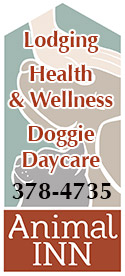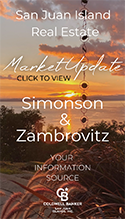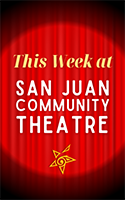Interview with County Public Health Office Dr. Frank James
Posted August 1, 2020 at 11:57 am by Peggy Sue McRae
The San Juan Update is pleased to reprint this interview by Minor Lile with San Juan County Public Health Officer Dr. Frank James as published 7.30.2020 in Orcas Issues News & Views…

Dr. Frank James – Contributed photo
As Public Health Officer for San Juan County, Dr. Frank James has played a prominent role in the community response to the Coronavirus pandemic. This past Tuesday we talked for about an hour in a conversation that touched on a wide range of topics, including the most significant COVID-related challenges facing the County, reliable sources of information, the balance between public health and economic health, tourism, prospects for a vaccine, the opening of local schools, and other topics.
The interview has been edited for clarity and conciseness.
Minor Lile: My first question is what is the role of the public health officer?
Dr. James: The Public Health officer is the one person in the county who is legally responsible for public health decision making, particularly in an emergency. So in every county, there’s a health officer and a Board of Health. And they are given broad powers and in emergencies extremely broad powers to control diseases that might impact everybody’s health.
Public Health Officers also have a role in the day to day work of public health in terms of controlling communicable diseases that might not rise to the level of being an emergency. For example, if there’s an outbreak of measles, pertussis or chicken pox. Those are things that can become quite serious if not controlled and so we certainly have a role in that. And then we supervise all the clinical staff and registered sanitarians that do the health and hygiene stuff in restaurants and septic systems and all that. And we also supervise the nursing staff and others that provide community health services. That might be immunizations for kids or other public interventions, or the Link program. Things like that are all in the health department.
Would you share some of your background?
In addition to being the Public Health Officer for San Juan County, I do have a number of other jobs. I have an active clinic that provides services to two large corporations. We provide all their primary care. I also have a clinic that takes care of people who travel internationally, with immunizations and advice about malaria and that sort of thing. I’m also the health officer for the Nooksack tribe. And I also do research and teaching. I’m on the faculty at the University of Washington School of Public Health and I’m an adjunct professor at Yang-Ming University in Taipei. For the past twenty years I’ve also worked in India, Nepal and East Timor. The health officer job is about eight hours a week. I’m also on call 24 hours a day, seven days a week for any emergency.
You’re clearly not a person that lets dust gather under your feet.
Not much.
How long have you served as the public health officer for San Juan County?
It will be 29 years in December. Betty Gilson had the job before me. She had been my mentor in medical school. And she was a public health MD and PhD, a brilliant person. And always somebody I had very much respected. Betty called me and asked me if I would do the work out there, and I said, “Betty, I don’t have time.” At the time I was the director and health officer for the Whatcom County Health Department and also ran the community clinic. Eventually, over about six months, she kept at me and finally she called and said “Frank I’m not going to work on Wednesday and I expect you to be there.”
(laughter)
She knew better than I did because I’m not doing any of the other things I was doing then and I’m still doing this.
That’s a good story. I would guess with close to three decades of experience, you must be one of the more seasoned public health officers in the state.
At this point I am. There are a few of us who began this work at around the same time. Many of them are retiring now. I’ll be 70 next year. You start to think about working less.
Looking back to when this all began, at what point did you realize the Coronavirus was a serious threat?
Pandemics have been an interest of mine for over 20 years. In that time, we’ve had a couple of dust-ups that looked like they might be significant. The H1N1 flu, and of course the original Coronavirus, the SARS. I worked for awhile in Hong Kong during SARS. I keep my eye on these bugs. So this type of virus is not an unfamiliar organism to me at all. I was unsurprised that the developments in Wuhan became the source of a pandemic.
So you saw this coming for awhile.
The classic thing is not if, but when. We’ll get past this one and there’ll be another one down the road. And so I think it’s something we prepared for both with SARS and H1N1. We had similar experiences that were milder than this one. With SARS, the spread was limited to about 8,000 people and 800 deaths and that was largely due to the highly effective management by the Hong Kong government and health care system. If it had gotten more out of control we would have had a situation similar to what we have now. But they stopped it at the source. And this time that wasn’t done in mainland China, of course.
Which organizations or individuals do you look to for accurate information and expert insight?
It’s interesting you would ask that. For years I’ve worked closely with the CDC (Centers for Disease Control) and have had many close friends in senior positions over the years. And the CDC, up until now, has been the organization everyone in the world looked to for leadership on these kinds of issues. And it is absolutely one of the saddest things in my professional career to see what has happened to the CDC. Many people have left. And these are very bright people, cutting edge. The sort of people who can find other places to work and have, many of them.
What’s driven that change at the CDC?
They aren’t allowed to be independent. These are smart hard-working people. They aren’t going to put up with people telling them what to do when it isn’t scientifically accurate. They’re just not going to do it.
There are other organizations that work globally and nationally. IHME (The Institute for Health Metrics and Evaluation) is a group based in Seattle at the University of Washington. With support from the Gates Foundation, they have become one of the global leadership organizations in public health.
The World Health Organization (WHO) has been the repository for coordinating knowledge about what’s going on in the world from a health point of view and it’s very disturbing that the US would withdraw from that. We simply won’t have the kind of intelligence and information that we need. It is in our own best interest to participate in an organization like that. Without those relationships and that knowledge, it will be very hard for us to know what’s going on in the world and participate in controlling outbreaks.
At any rate, the WHO and CDC are still two of the prominent organizations that I look to for advice. They are the organizations with the most information. But it has, in recent years, become politicized in a way that I find disheartening.
Turning to the specific situation here in San Juan County, what is the biggest COVID related challenge that we are facing at the moment?
Locally, we’re fortunate that this is such a wonderful place to live. We attract exceptionally qualified people. (Community Health Manager) Ellen Wilcox has run the nursing and social services programs for a number of years. She’s very well-trained in both social work and public health. You’ve seen Mark Tompkins (Director of Health and Community Services) and Kyle Dodd (Environmental Services Manager and Incident Response Commander for the Emergency Operations Center) at the Board of Health and County Council meetings. That’s as good as it gets. They have a broad perspective and are adept at understanding very complex issues. They do an exceptionally good job of presenting that information and the policy choices to the policy makers. (Senior Deputy Prosecutor) Jon Cain is an amazing legal advisor and he has also helped me through some really hard times along the way.
We’ve also been fortunate that virtually all of the nurses who had retired in recent years have come back to help us. That’s just so touching to see them step right up. They were retired and had earned the rest they were getting. But they are as good as they ever were.
We have many well-trained and experienced people. We’re very lucky that way.
From my point of view, the biggest challenge is keeping this small group of people vibrant and moving forward consistently and reliably. Many of them have been working more than eight hours a day for at least five days a week for months now. Sometimes they’re up at midnight trying to sort things out and then have to go to work the next day. And there’s probably not going to be an opportunity to slow down until at least January. So it’s really trying to get people time off and rest and also get some additional people added to the team to meet the challenges and volume of work.
Another challenge is contact tracing, the investigation of positive tests. Often times the person doesn’t know they are infected until we tell them. And then you have to ask who all the people in their life are that they might have either gotten it from or given it to. It may look easy from the outside, but it’s really complicated stuff. Often people are concerned that they might have exposed a person they care very deeply about. They might think, ‘my God, I’ve exposed my parents or my grandmother.’ Or that they might have given it to somebody in the community and that it has spread through work or social interactions.
These are delicate conversations. They require incredible sensitivity. and abilities you can’t really teach anybody. That’s the part I think people don’t really appreciate, even some of the people on our own team believe anybody can do that. I’m here to tell you not everyone can. It requires training and knowledge as well as a gift for being professional and sensitive and empathetic, so that people have confidence in you.
There are other things that are hard, but I think the case investigations are at the heart of what we do. That is what allows us to stop the disease. And we’ve done that. Almost every case we’ve had we know where it came from, we know everybody that was exposed and we’ve stopped it. In the family unit most often. And that’s what you have to do to be successful. Once it’s out in the community, it’s a whole different deal. We haven’t had that in our county. We’ve really stopped the disease at every turn.
You’ve brought up a number of times at recent meetings that there are no known tourist related COVID cases in the county. Is that —
That’s not exactly 100% true. I would rephrase that. There have certainly been people who have moved here to work in tourist related jobs and there is in at least one case somebody who definitely was a tourist who was visiting and exposed other people, so it’s not 100%.
OK
If I could communicate one thing to the public that I think is really important it’s that almost all of our cases are friends and neighbors, or relatives coming to visit the islands, coming to visit your home and not wearing a mask and not being socially distanced. That’s where the infections are occurring. It’s not the walking down the street, or at the grocery store. Those are uncommon ways to get the disease.
I think we still need to worry about tourism, we need to be very diligent about it. Typically if you get a case the first thing you do is as, “where is the off-island contact?” And it’s always going to be an off-island person because we don’t have it in our community.
We’ve had the strongest masking policy in the state in place since May. And that’s a big part of what has allowed us to be successful.
The facial covering order is one of at least two times that I’m aware of – the other being your order limiting the use of transient accommodations – when you issued orders that were more restrictive than what the State was requiring.
Initially I wanted that masking order to be aimed at individuals. And I wanted the sheriff to enforce that masking order with a $1,000 fine and up to 90 days in jail. The sheriff very kindly told me he didn’t have the staff to do that. So we changed direction.
Our masking order is not technically directed at the tourist or the individual coming into the store. It’s the responsibility of the business owner to not allow anybody in without a mask. That turned out to be an even better way to do it, because the store owner, the business operator, they’re smart. They’re protecting themselves, they’re protecting their employees, and they’re protecting their patrons. And they get to blame me for doing it. It’s perfect.
(laughter) As long as you can take the heat.
Well, I’m not there, nobody is going to shoot me. It’s actually turned out to be a very good way of doing things. Nobody else has replicated that and I think they were foolish not to. I’ve actually asked my fellow health officers around the State why they don’t have a similar rule. And they’re all afraid of a dozen people hollering at them. And there were people that hollered at me. So they holler, big deal. If you can protect people’s health, if you can save their lives, that takes precedence.
And we’ve had almost no problems with it at all. But it has put an additional burden on the grocery stores, the pharmacies, and other businesses. They’ve also had to find ways to deliver those services at the curbside, for people who don’t want to come in. Or by delivering things to their homes. Our businesses have been very creative in doing that.
With transient accommodations, there was no way to turn the flow of people coming here off, except by limiting camping and transient accommodations. And we did that for a number of months. Then we realized that we really need to loosen up on this a little bit because a lot of people are going to go bankrupt. And so we began to look at how we can relax those requirements.
And I think we’ve done – people will be critical no matter what you decide – but I think we’ve done a remarkably good job in balancing the public interest and those private interests. People need to make a living.
How do you see the balance between public health and economic well-being?
I’ve never felt more pressure in my life than when I’ve had to make the decisions that really balance livelihood and life. Those are the hardest decisions that anyone will ever be asked to make. Because people do go bankrupt, people do lose their home. There are big economic consequences for individual people. And I’m just hoping to find that balance.
Like with the summer camps. We’ve got a lot of summer camps in our county. And I had to sit down with all of them and say ‘can you make it if we don’t allow you to open this year.’ Every one of them said that they would survive to the next year. And that gave me great hope that we were going to do some smart things that would impact them but that they were all going to still be here next year.
Another challenge is that almost half of the individuals in our county are high risk. And that’s a very sobering thing. We have to do whatever we can to keep the virus out. At the same time, people have to make a living or they’re not going to be here next year either.
These are difficult times. I’m very fearful of substantial future economic impacts that we haven’t really begun to appreciate yet. So I think we need to be as healthy economically as we can be because there are likely to be more hard times ahead.
So that’s the hardest thing for me. I can’t say too many good things about the business people in our community who are carrying that load, who’ve said, “I’m going to do the right thing. Tell me what the science says.” I haven’t had irrational opposition from anybody. People really ask how can we make this happen. And for that I am eternally grateful. What makes us successful and makes it work for the community is that willingness.
Businesses have been very — in many ways they’re the heart and soul of our response. People are critical of them for wanting to make a living. But they are also doing what they need to do to prevent this from getting worse. And providing real leadership and honest partnership.
Many people have my phone number, but I have the phone number of lots of community leaders too. And I can call local business leaders and ask them what’s practical. It’s got to be that way to be successful.
There’s a good balance too with regard to our elected officials. All three of our commissioners are strong personalities. They are advocates for their island and their community and they’ve provided strong leadership too. They’ve provided the resources that we need in a really hard time. I think they’re $2.5 million in the hole right now and they are trying to figure out how to balance that budget. And they are still trying to find resources we need to get the job done.
We’re fortunate that we have such solid people in those roles. We don’t agree about everything. Political interests and medical interests are often the same, but sometimes they are different and we certainly have differences. But the fact is that they’re committed to a civil process of learning and practical accommodation.
I’m sure they’ve been unhappy with some decisions I’ve made. I make all my decisions independently and I don’t ask for their approval. In an emergency I can write something down and sign it and it’s the law. If you ever want to be intimidated think about what that would be like.
That’s a lot of responsibility to have on your shoulders.
It’s huge.
The thing some people occasionally forget is that we have to play by the virus’s rules. It wants to reproduce by infecting as many people as it can. That’s the only logic it’s got. And it isn’t going to change because we want it to change. We have to be smarter than it. Until we get a vaccine or medications, we’re going to have to keep doing some pretty draconian things to keep this bug at bay. We’re going to have to limit people’s freedoms. And those are hard things.
We’re really fortunate that we have a community that’s cohesive, that really sees the greater good and wants to provide for the greater good. I feel grateful every day that we have a community like that. There are many communities where there is serious discord and disfunction.
What did you think about the Department of Health decision to return the county’s phase three application? It seemed like a it was a bit of a relief to everyone that the State made that decision.
You probably know that I asked the County to drop our application. And the reason for that kind of got lost — I’m not sure it was ever clearly enough understood.
What had happened between our application being submitted and before it was acted on was that a big body of data, that I knew was in the works, finally fell. And it made really clear that there is aerosol spread of the disease. And up to that point, the understanding had been that aerosol spread didn’t happen. So that’s the main thing that was different and I really thought we needed to bring that application back and rethink it. And I think I got out ahead of the Council in terms of understanding that.
And it was also a difficult thing because if the Council withdraws it, it doesn’t start again unless I start it. And then it goes to the Board of Health, who can actually change what I recommend, but then when it goes to the Council it’s just thumbs up or thumbs down. So I think they liked the product they had and wanted to keep that option open. I hadn’t had the opportunity really, to help them understand fully why I didn’t think that was a good idea. And I think it was a relief to everybody. A lot of these things, once they happen, people say, oh, that wasn’t so bad.
What’s your view on local schools opening in the fall?
I met with three of the four superintendents in the county on Monday and I think we are on the same page. And I’ve exchanged information with the other superintendent and I think she’s also on board. Of course, it’s the school boards and not the superintendents that make these decisions, but I think the consensus, at least at the superintendent and my level, is that it really isn’t going to be safe with the current level of spread to open schools like they were open in the past. And I think we’re going to have to find a way to do that online learning part. So I think that there’s going to be a distance learning primarily for all the schools in the county. I think that people are largely on board with that.
The risk to kids is probably not very great. We know a lot about mortality, kids don’t die much from this at all. There hasn’t been a death under 19 years of age in the State yet. But we know less about the morbidity (lingering effects). There may be long term impacts. With other diseases, like measles, we know that the immune system is debilitated for a period of years afterwards. Not weeks or months. There may be things like that with this virus that we don’t know about yet.
So I think it’s a very prudent thing to do and I think most places are thinking about not opening up fully. A full spectrum school, with kids in the building, probably not until January. This idea of groups of 30 walking down halls and filing off into rooms and then filing out and mixing up with more people, that was designed to spread disease. Clearly there are some kids who need to have face to face interaction, who are only going to learn if they have that availability. It’s going to have to be an organized effort with each school.
Another thing about schools that people in education don’t talk much about is having a safe place for kids to go while their parents are working. That’s a very important critical function of schools. So I’m trying to work with the superintendents to find ways to keep kids engaged in a system that provides for safe places for kids to be while their parents are working. I think they can do that a lot easier if they are not mixing it up with the curriculum. We need to assure that function, not just the educational function. Each island will find its own solution to that question of where a safe place is for kids and they are coming up with very creative and neat solutions that are really individual to their community.
On Orcas, you’re really lucky. Orkila is a great facility where there can be distributed education in small groups and buildings all over the place if they can work out the details. On Lopez they are building these two or three family bubble units and kids will just kind of stick in there and spend time with that in and out of school, which I think is really a smart idea as well. There are lots of great ideas coming forward.
It requires thinking outside the box, finding ways to socialize that gets kids together and do it safely and then compartmentalize that academic piece and do it through online curriculum. I’ve been very impressed by the work that our superintendents are doing to develop plans that really make sense. Because if we don’t do that, if people just go back to their bricks and mortar school, I think we’d see the biggest wave we’ve seen of the disease. Honestly, I’m not ready for that. I don’t want that to happen.
Through the UW, I’m on a committee for one of the leading vaccines that’s being developed, so I’m pretty familiar with several of the leading vaccines. If everything goes well, they’ve got a very good chance of being in a usable form and proven safe and effective by January. Once we have that, most of the experts agree that between 40% and 60% need to be protected to stop the epidemic and we can all go back to a more normal life. And that could be pretty quickly achieved with a vaccine.
Given your prior experiences in the county what level of acceptance do you think there will be around use of a vaccine if and when one becomes available?
I think we would be looking at 50% participation, and that’s probably going to work. Our vaccine acceptance level is lower than in other places, but when there’s actually been an outbreak, such as with measles, most everybody lines up and gets immunized. There are very few people that don’t. So there’s some hesitancy but that can be overcome by knowledge.
The bigger worry for me is that because of the interruptions in routine immunizations I think there is a real risk for pertussis, for measles, for chicken pox in the fall among the school age population. Hopefully, we’re going to have a milder year with the flu because everybody is walking around with masks and washing their hands, so that can prevent a flu outbreak this year essentially. It would be nice not to have that on top of this because they are similar in their clinical presentation and that would be a real challenge.
My last question is about what this experience has been like for you on a personal level. What you do to try and maintain a sense of balance through all of this?
For more than 30 years I’ve had a couple of habits. I get up in the morning and I do about a 20-minute yoga routine that I do just by myself. I get an aerobic pump, I get stretched and it quiets my brain down. Then I sit and meditate for 25 minutes or so. That 45 minutes of time is my gift to myself every day. That really rejuvenates me and I can start my day more effectively because of that. It’s always been important to me, but it is really important to me now. For that space of time, I can live in the present moment, and the present moment isn’t so bad. Not worrying about the past, not worrying about the future. I find that 45 minutes to be extremely helpful in taking the burden off. I try to do it every day, if I miss a day my wife is on my case about it.
And then there’s the incredible support of our community. Of course, the staff I work with as a team. We support each other. And the emails and telephone calls I get from people are really uplifting. Who knows why they call or send an email when they do? But it means the world to me. Some days I’ll be doing something really hard, I’ll be emotionally exhausted, I won’t have gotten enough sleep, and I’ll get these emails from people just saying, “I know what you’re going through. We’re supporting you and you’re doing the right thing. Keep going.” I get a lot of those and it really helps.
So the very fact that we have community. It’s really important to me. What allows me to keep going at a strong pace is the team that I work with and the community that supports us. And the community is the ones doing the work – putting on the masks, making the financial sacrifices. They are the people that are making this possible.
You can support the San Juan Update by doing business with our loyal advertisers, and by making a one-time contribution or a recurring donation.
Categories: Government, Health & Wellness
One comment:










One comment...
Dr. James, as stated in the interview, has great power in our island community and I’m glad to hear more of his responsibilities, perspective and credentials. I feel we’re in good hands with him and the rest of the team making these hard decisions, for the balancing act between the economy and the potential spread of the bug is not one I’d wish to carry.
And, finally, I’m hearing what is so logical to me, that there could be little to no flu season this year because of our new habit (should have been in place all along) of washing our hands, not touching our face, and using masks and personal space distancing to avoid getting sick, no matter the bug! Like he says, with all the problems of recognizing Covid-19, we don’t need the common cold or flu coming along and messing with our minds and medical staffs.
By submitting a comment you grant the San Juan Update a perpetual license to reproduce your words and name/web site in attribution. Inappropriate, irrelevant and contentious comments may not be published at an admin's discretion. Your email is used for verification purposes only, it will never be shared.